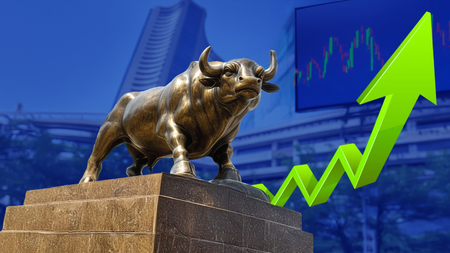
New Delhi – HSBC Global Investment Research on Wednesday upgraded Indian equities from neutral to overweight, citing the domestic market’s relative attractiveness in the regional context.
The firm noted that recent US tariffs are unlikely to significantly impact the profits of most Indian companies. Despite substantial foreign fund outflows over the past year—which coincided with a period of underperformance—domestic investors have remained steadfast, providing crucial market support.
“While earnings growth expectations may moderate further, valuations are no longer a concern,” HSBC said. “Government policies are increasingly supportive of equities, and most foreign funds remain lightly positioned.”
Globally, foreign investors have been net sellers across Asia this year, often a negative signal for regional markets. Yet, India’s market has risen by an average of 20%, largely driven by local retail inflows. In contrast, momentum in Chinese equities, particularly in Hong Kong, appears uncertain despite the strong prior run. HSBC noted that while valuations in China are elevated, they are not extreme, and with $22 trillion in cash held by retail investors, gradual reallocation into stocks may support slow growth.
Elsewhere in Asia, Japan, Korea, and Taiwan have attracted investor interest in AI-related sectors, though some trades—especially in Korea and Taiwan—are now highly crowded. Japan’s equities have also benefited from a weaker yen, while long-term themes like corporate governance are supportive in Japan and Korea but insufficient alone to drive markets. As a result, HSBC downgraded Korea to underweight in mid-August.
In ASEAN markets, investor sentiment remains low, influenced by political developments in Thailand and Indonesia, with Indonesia’s fiscal prudence under scrutiny following a cabinet reshuffle.
With inputs from IANS